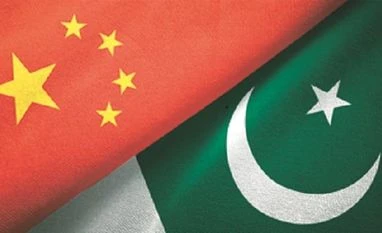Pakistan's newly-appointed Foreign Minister Bilawal Bhutto Zardari held talks with his Chinese counterpart Wang Yi on Sunday in Guangzhou city and emphasised that "it is critical to resolve all outstanding disputes in South Asia in view of the challenges faced by the people due to the pandemic, soaring commodity prices, climate change and poverty.
This is Bilawal's maiden visit to China after he took over as foreign minister following the fall of the Imran Khan-led government last month.
While reaffirming their strong support for each other's "core interests", both sides reiterated that a peaceful and prosperous South Asia was in the common interest of all parties, said a joint statement issued at the end of their meeting held in the southern Chinese city of Guangzhou as Beijing is currently under semi-lockdown to contain the fast-spreading Omicron variant of the COVID-19.
"Given the challenges faced by the peoples of the region, due to global pandemic, soaring commodity prices, climate change and poverty, it is critical to resolve all outstanding disputes to promote regional cooperation and advance the goals of lasting peace, stability and shared prosperity," Pakistan state-run APP news agency quoted the joint statement as saying.
While it said Bilawal has "briefed the Chinese side about the latest developments in Jammu and Kashmir", the reference to all "outstanding disputes raised speculation whether it also alluded to the border dispute between India and China, especially the current over two year long military standoff at Eastern Ladakh.
"The two sides underlined the importance of the peaceful resolution of the dispute based on the UN Charter, relevant Security Council resolutions and bilateral agreements," it said, apparently referring to the Kashmir issue.
More From This Section
The two sides discussed the latest developments in Afghanistan and agreed that peace and stability in Afghanistan was vital for regional development and prosperity, it said.
"The two sides call upon the Afghan interim government to develop a broad-based and inclusive political structure, adopt moderate and sound internal and external policies, and protect the rights of women and children and ensure that the Afghan soil was not used against any of its neighbours," it said.
Pakistan and China have reaffirmed their strong support for each other's core interests and major concerns and commitment to deepening strategic communication including at the highest political level and practical cooperation, the APP report on the talks said.
Bilawal's visit coincided with the 71st anniversary of the establishment of diplomatic ties between China and Pakistan. On May 21, 1951, Pakistan and China established diplomatic ties almost a year after India.
During the visit the two ministers held in-depth discussions on the entire gamut of bilateral relations as well as regional and international issues of shared interest.
A press release issued by China's Foreign Ministry said Chinese and Pakistan Foreign Ministers have agreed to issue an "enhanced version" of security protocol to protect thousands of Chinese personnel working in Pakistan in view of the recurring terrorist attacks against them, especially the recent suicide attack by a woman suicide bomber of the Balochistan Liberation Army in Karachi university that killed three Chinese nationals.
The two ministers have "agreed that any terrorist attack against Chinese citizens in Pakistan is unacceptable, any despicable attempt to undermine China-Pakistan friendship will not succeed, and incidents such as the terrorist attack on the Confucius Institute in Karachi must never be repeated, the press release said.
"The two sides agreed to issue an "enhanced version" for safeguarding the safety of Chinese personnel, institutions and projects in Pakistan, and will formulate specific plans for implementation as soon as possible," it said.
"The two sides called on regional countries and the international community to form a joint effort to combat all forms of terrorism," it said.
They also discussed economic coordination, industrialisation and speeding up of the USD 60 billion China-Pakistan Economic Corridor (CPEC).
The joint statement said both sides expressed firm resolve to synergizing development strategies, pushing forward all CPEC projects in a safe, smooth, and high-quality manner, promoting cooperation in areas such as economy and trade, investment, industry, agriculture, health, and science and technology, contributing to the peoples' well-being and delivering greater benefits to local communities."
The two sides expressed satisfaction at the growing momentum of bilateral defence cooperation and exchanges.
The 33-year-old, whose mother Benazir Bhutto and grandfather Zulfikar Ali Bhutto were former prime ministers, is just back from New York where he held talks with the US Secretary of State Antony Blinken and discussed strengthening the US-Pakistan relations which deteriorated during the previous Imran Khan regime.
In his interviews to the media after his talks with Blinken, Bilawal ruled out that Pakistan's growing relationship with the US would hurt its ties to Beijing.
Bilawal had earlier held talks with Wang through video link on May 12, followed by a virtual meeting between Pakistan Prime Minister Shehbaz Sharif and Chinese Premier Li Keqiang.
In April, Bilawal's predecessor Shah Mehmood Qureshi during his visit to China had announced that Beijing has agreed to roll-over USD 4.5 billion debt due to be paid by Pakistan this year.
)